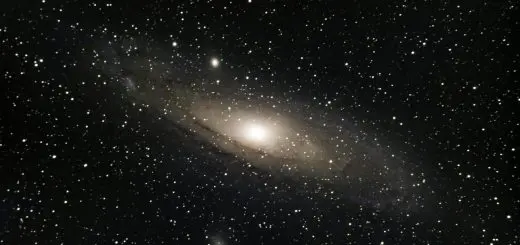Why Is the World Going to End? Understanding the Big Questions

Looking for more amazing products? Check out our online store and explore our collection here! Happy shopping!
Before diving in, please note: This post is for informational purposes only. If you’d like to know more about how we approach topics, feel free to check out our friendly Disclaimer Page.
Hey there, amazing readers! 
We’re committed to delivering quality posts, and your support (even just sticking around despite the ads) means everything to us. So, bear with us, and thanks for helping us keep the good vibes rolling. Now, on to the fun stuff!
TRANSLATE BUTTON AT THE END OF THE ARTICLE
Introduction
The question of whether or not the world is going to end is something that has puzzled and fascinated humanity for centuries.
From apocalyptic theories to scientific predictions, it’s a topic that taps into our deepest fears and curiosity.
But is the end of the world something we should really worry about, or is it just a natural part of life’s mysteries?
Let’s dive in and explore what this question really means.
Whether you’re interested in the science behind it, cultural perspectives, or just seeking some comfort in times of uncertainty, we’ll unpack it all in this article.
The Concept of “The End of the World”
When people talk about the world ending, they could mean a lot of things.
The “end” could refer to:
The physical destruction of the Earth: Think massive natural disasters, asteroid impacts, or global catastrophes.
The collapse of civilization: A breakdown in societal systems and structures, leading to a major shift in how humanity lives.
A spiritual or existential end: For some, the idea of the world ending might have a more philosophical or religious meaning, such as the end of an era or the conclusion of a great journey.
The reason we’re so captivated by the idea of the world ending is that it touches on both our fear of the unknown and our hope for the future.
But what do we really know about it?
Scientific Predictions: What the Experts Say
From the Big Bang to today, Earth has experienced massive changes.
But the question remains: will our planet ever face a literal “end”?
Climate Change and Global Warming: Experts agree that human activity is impacting the planet’s climate.
If left unchecked, rising temperatures could cause sea levels to rise, extreme weather events to increase, and ecosystems to collapse.
While this might not mean the end of the world itself, it could lead to significant changes that make life more challenging.
Asteroid Impact: It’s been theorized that a massive asteroid could one day collide with Earth, leading to mass extinction.
While this scenario is unlikely in the near future, scientists have identified and track near-Earth objects to help mitigate this risk.
Supervolcanoes: Earth is home to several supervolcanoes, like Yellowstone in the United States.
If one of these volcanoes erupts, it could release enough ash and gases into the atmosphere to disrupt global temperatures and food production.
Thankfully, these events are extremely rare.
The Sun’s Death: In the far, far future (about 5 billion years from now), the Sun will exhaust its fuel and expand into a red giant, potentially engulfing Earth.
While this does technically mark the “end” of the world, it’s not something any of us need to lose sleep over today!
So, yes, the Earth might face some challenges down the line, but for the foreseeable future, we’re likely in the clear—if we take care of our planet, that is.
The End of the World in Pop Culture
The “end of the world” has been a common theme in movies, TV shows, and books.
Some popular depictions include:
Apocalyptic Events: Movies like 2012 and The Day After Tomorrow often depict sudden, catastrophic events that destroy the world.
While these films make for great entertainment, they’re not usually rooted in real science.
Zombie Apocalypses: From The Walking Dead to World War Z, zombie-themed end-of-the-world scenarios have taken hold in pop culture.
While zombies aren’t something we have to worry about (thankfully), these stories often highlight human survival, resilience, and adaptation.
Post-Apocalyptic Worlds: Stories like The Road and Mad Max explore what happens after society collapses.
While they paint grim pictures of humanity’s future, they also emphasize themes of hope, survival, and human connection.
While these pop culture representations can be entertaining, they’re often not as grim as they might seem.
They highlight the human spirit’s ability to adapt and rebuild in the face of adversity, even in the most extreme scenarios.
Philosophical and Spiritual Perspectives on the End of the World
For some people, the end of the world isn’t just about physical destruction.
It’s about change—big, existential shifts that signal the end of one phase of life and the beginning of another.
Religious Beliefs: Different religions have varying views on the “end times.” Christianity, for example, speaks of an eventual “Second Coming” and the establishment of a new world.
Many Eastern philosophies, such as Hinduism and Buddhism, view cycles of destruction and rebirth as part of the natural order of the universe.
Existential Perspectives: Some people view the “end of the world” as a metaphor for personal transformation or the end of a societal era.
This perspective emphasizes the importance of change, growth, and renewal.
It can be comforting to think of the “end” not as a literal event but as a step toward something new.
Rather than fearing an impending apocalypse, some people find solace in the belief that the world will continue to evolve, with each cycle bringing fresh opportunities for growth and understanding.
Should We Worry About the End of the World?
While it’s natural to worry about the future and the state of the world, it’s also important to remember that many of the “end of the world” scenarios are either incredibly unlikely or so far in the future that they don’t affect us in the here and now.
What we can focus on today is how we act to make the world a better place for future generations.
Here are some ways we can help ensure a positive future:
Taking Action on Climate Change: By reducing emissions, supporting sustainable practices, and pushing for global cooperation, we can help mitigate some of the risks associated with climate change.
Promoting Peace and Cooperation: Working together as a global community to address challenges like war, poverty, and inequality will help build a more resilient world.
Living Mindfully: In our everyday lives, practicing mindfulness, gratitude, and kindness can help shift the focus from fear to positivity, helping us create a world that thrives on connection and hope.
Conclusion
The end of the world is a fascinating concept, but it’s important to remember that much of the fear surrounding it is tied to uncertainty and things beyond our control.
Whether we’re talking about scientific risks, philosophical questions, or pop culture predictions, there’s always room for hope and action in the present.
By focusing on what we can do now to make a difference, we can contribute to a brighter, more sustainable future for all.
So, while we may not have all the answers to the age-old question, “Why is the world going to end?” we do know one thing for sure: the world isn’t ending anytime soon if we continue to take care of it, each other, and ourselves.

The Enlightenment Journey is a remarkable collection of writings authored by a distinguished group of experts in the fields of spirituality, new age, and esoteric knowledge.
This anthology features a diverse assembly of well-experienced authors who bring their profound insights and credible perspectives to the forefront.
Each contributor possesses a wealth of knowledge and wisdom, making them authorities in their respective domains.
Together, they offer readers a transformative journey into the realms of spiritual growth, self-discovery, and esoteric enlightenment.
The Enlightenment Journey is a testament to the collective expertise of these luminaries, providing readers with a rich tapestry of ideas and information to illuminate their spiritual path.
Our Diverse Expertise
While our primary focus is on spirituality and esotericism, we are equally passionate about exploring a wide range of other topics and niches 

To ensure we provide the most accurate and valuable insights, we collaborate with trusted experts in their respective domains 
Our blog originally focused on spirituality and metaphysics, but we’ve since expanded to cover a wide range of niches. Don’t worry—we continue to publish a lot of articles on spirituality! Frequently visit our blog to explore our diverse content and stay tuned for more insightful reads.
Hey there, amazing reader! 
Check out our store here and take a peek at some of our featured products below! Thanks for being awesome!











